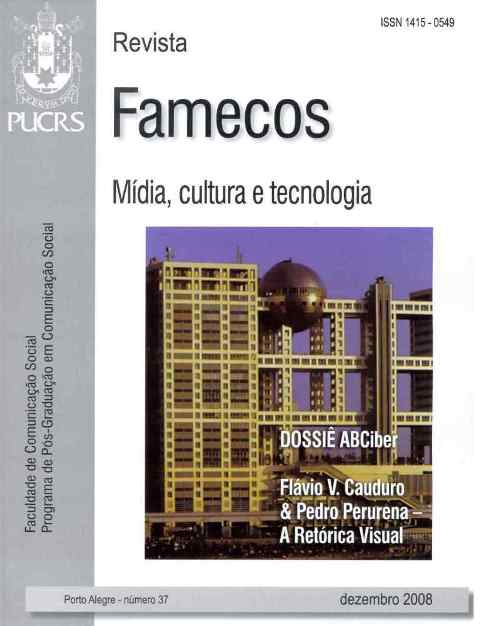Cyberculture, commons and informational feudalism
DOI:
https://doi.org/10.15448/1980-3729.2008.37.4804Keywords:
Cyberculture, information feudalism, commonsAbstract
The expansion of information networks consolidated the key elements of cyberculture, the remix and many collaborative practices. It also weakened the copyright and the brokerage industry. Exploring this scenario, the following exposure seeks to identify opposed trends in cyberspace between access to “free culture” and the imposition of a “permission culture.” With Lessig, Benkler and Smiers points of view it contextualizes the tension between creative possibilities of networks and the stiffening on the symbolic goods property rules. It evaluates Drahos and Braithwaite proposal of information feudalism as one of the most important projects in reconfiguring science and culture development and control, and which are the consequences of this control. It shows how this trend coexists with the idea of commons, one of the most important dimensions of cyberculture.Downloads
References
BENKLER, Yochai. The wealth of networks: how social production transforms markets and freedom. New Haven and London: Yale University Press, 2006.
DRAHOS, Peter; BRAITHWAITE, John. Information feudalism: who owns the knowledge economy? New York: The New Press, 2003.
JENKINS, Henry. Convergence Culture: la cultura de la convergencia de los mediso de comunicación. Barcelona: Ediciones Paidós, 2008.
LANDOW, George P. Hipertexto: la convergencia de la teoría crítica contemporánea y la tecnología. Barcelona: Ediciones Paidós, 1995.
LESSIG, Lawrence. Cultura Livre: como a grande mídia usa a tecnologia e a lei para bloquear a cultura e controlar a criatividade. São Paulo: Trama, 2005.
McLUHAN, Marshall. Os meios de comunicação como extensões do homem (Understanding Media). São Paulo: Editora Cultrix, 1986.
PISCITELLI, Alejandro. Ciberculturas 2.0: en la era de las máquinas inteligentes. Buenos Aires: Paidós, 2002.
SMIERS, Joost. Artes sob pressão: promovendo a diversidade cultural na era da globalização. São Paulo: Escrituras Editora : Instituto Pensarte, 2006.
WOLTON, Dominique. Internet e depois? Uma teoria crítica das novas mídias. Porto Alegre: Sulina, 2003.
Downloads
Published
How to Cite
Issue
Section
License
Derechos de Autor
La sumisión de originales para la Revista Famecos implica la transferencia, por los autores, de los derechos de publicación. El copyright de los artículos de esta revista es el autor, junto con los derechos de la revista a la primera publicación. Los autores sólo podrán utilizar los mismos resultados en otras publicaciones indicando claramente a Revista Famecos como el medio de la publicación original.
Creative Commons License
Excepto donde especificado de modo diferente, se aplican a la materia publicada en este periódico los términos de una licencia Creative Commons Atribución 4.0 Internacional, que permite el uso irrestricto, la distribución y la reproducción en cualquier medio siempre y cuando la publicación original sea correctamente citada.






